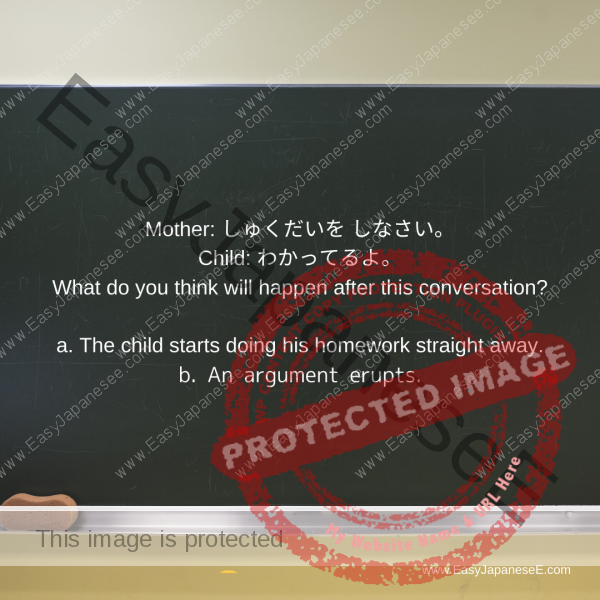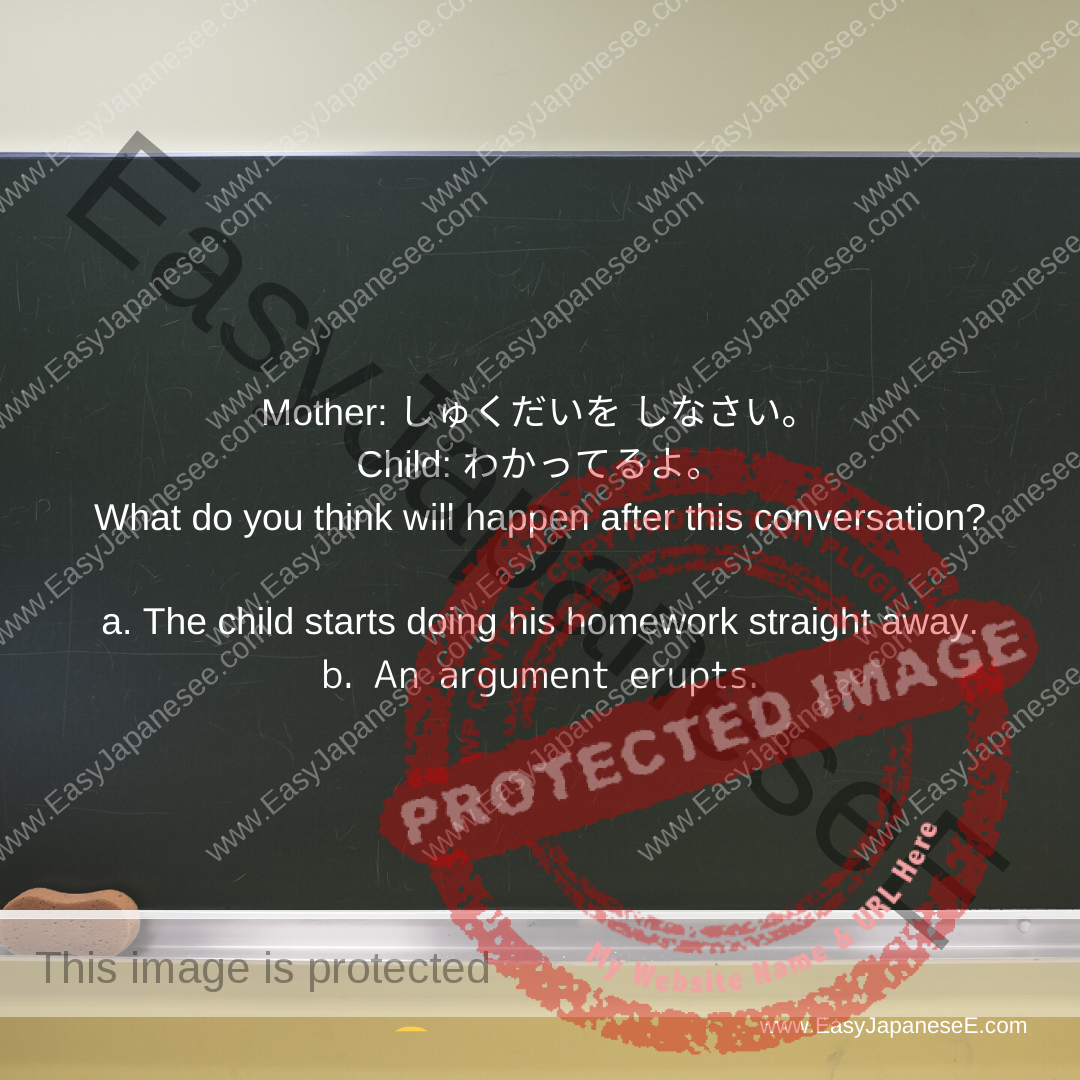
Mother: しゅくだいを しなさい。
Child: わかってるよ。
What do you think will happen after this conversation?
わかってるよ is a casual, conversational version of わかっているよ which in turn is a casual version of わかっていますよ. わかっています is derived of わかります but these two are used very differently.
The other day I wrote about the verb わかる. There I explained わかる is an intransitive verb meaning “[something] gets clear enough (for a person to understand/notice).”
“[てform]+います” pattern is to describe a continuing state for a period of time, so わかっています means “[something] has been already clear to me all along” and it sounds like “I know it already (so don’t tell me about it).” Will you say that if you are about to start doing your homework? I wouldn’t. If I am ready to do it, I would just say はい、おかあさん.
わかってるよ is usually a cross response to whatever is said before and is often followed by ほっといてよ (=leave me alone). So in this scenario chances of the mother getting annoyed with the child’s response are quite high, which is likely to lead to an argument.
So what I really wanted to say in this post is: “don’t confuse わかっています/わかっている with しっています/しっている (= I know).” わかっています/わかっている can sound quite rude.
Having said that, わかっています can also be used in a positive meaning to show your determination.
リスクは じゅうぶんに わかっているんですが、どうしても やってみたいんです。
I am fully aware of the risks but I still want to try doing it.


2 Replies to “Don’t use わかっている unless you really mean it!”